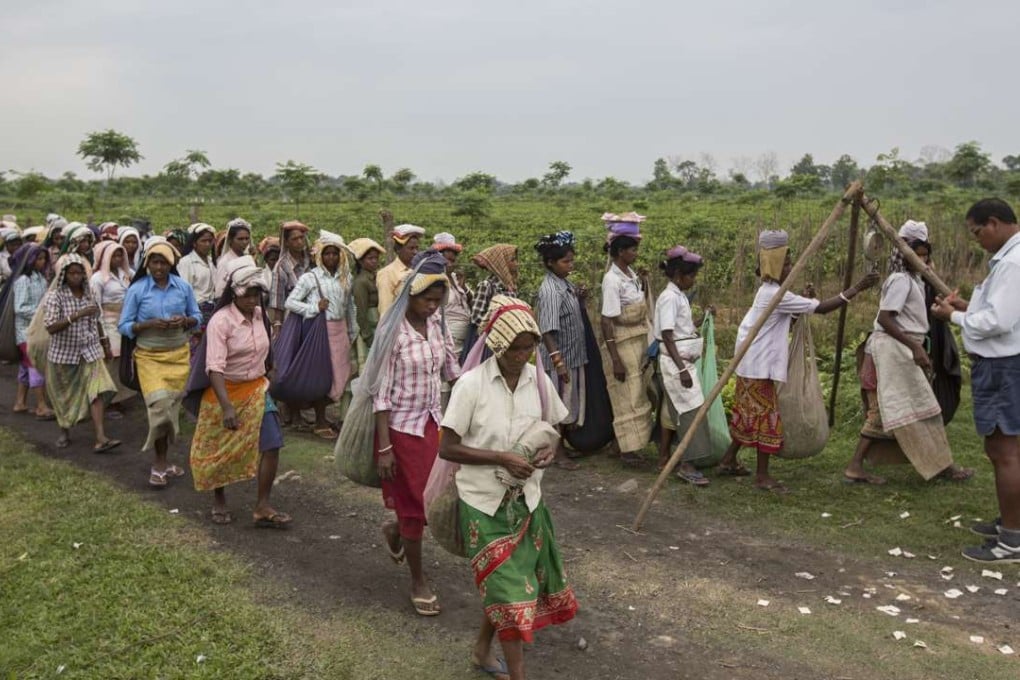Indian tea pluckers caught in time warp of misery and deprivation
Workers endure poverty little changed since their 19th century ancestors began work as bonded labourers, and as industry declines and tea gardens close they struggle for food and are prey to human traffickers

At noon, when the siren signalling the end of the morning shift blows across the Mogulkata Tea Estate, 45-year-old Mina Sharma snatches up her umbrella and slippers and joins a lengthy queue of sweating, ragged women waiting for their leaves to be weighed. In front of them, dressed in sleek, impeccable shirts and shorts, two male managers check the weights and scribble numbers onto small pieces of paper, which they then hand over to the pluckers. As soon as she has dumped her load into the waiting trailer, Sharma rushes home to cook herself a meagre lunch of vegetables, which is all that she can afford.
After 90 minutes, when the siren blows again, Sharma will leave her rundown house to finish plucking the 25kg of tea leaves she must collect each day.
Tea workers in West Bengal are deprived of the minimum of the minimum. They are kept in this condition on purpose in order to provide the industry with cheap labour
“My life is a constant rush,” she says, wolfing down her food. A single mother of one, Sharma started working as a plucker when she was 30, having taken over her mother’s job. Like her colleagues, she earns just 122.50 rupees (HK$14) per day, despite working in one of India’s most important industries.
Sharma was born and bred in Pakka Line, one of several villages dotting Mogulkata, in eastern India’s Dooars region, which straddles the floodplains and foothills of the Himalayas. She lives with her parents in a house that was provided by the tea garden company more than 50 years ago.
“They never mend it,” she says, bitterly, looking at the rusted tin roof. “Every time it rains, we have to use umbrellas inside.”